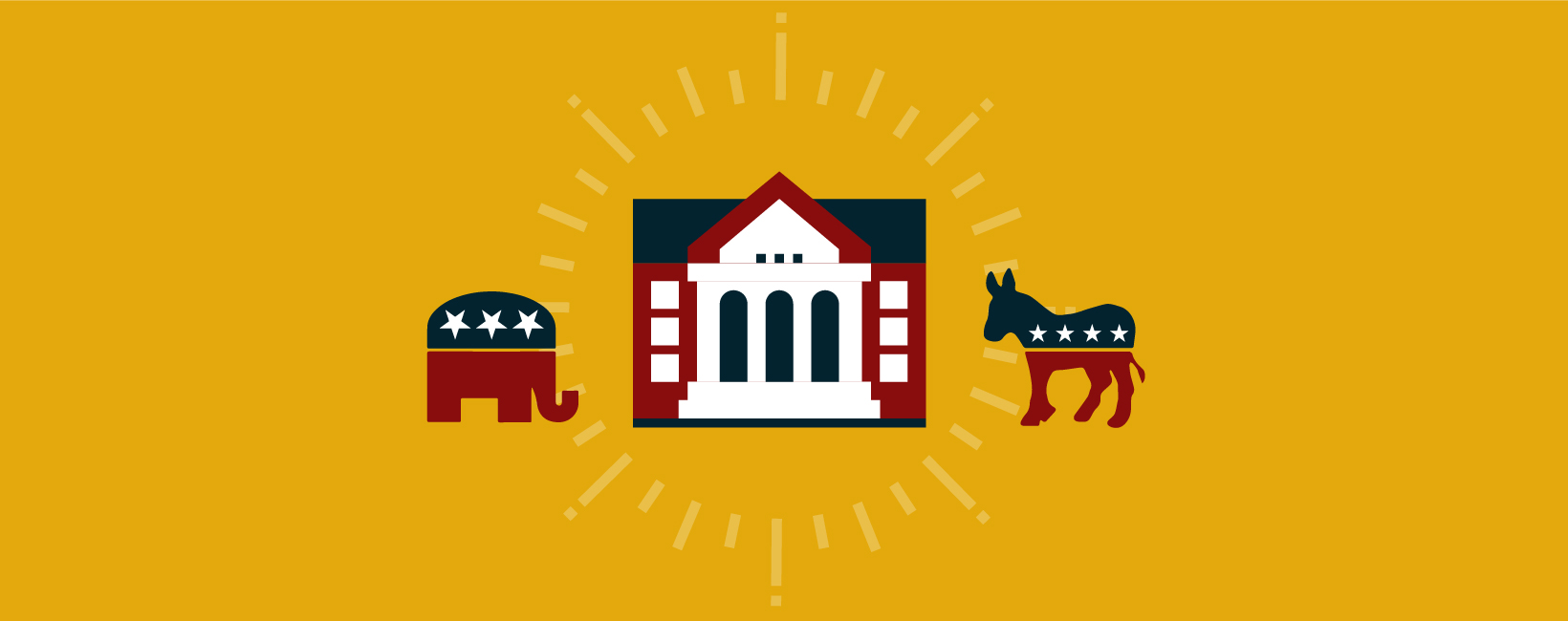 Jan 21, 2025
Persona
Jan 21, 2025
Persona
Understanding how politics impacts prospective students and parents in their choices for college has potentially more weight than ever before. Carnegie completed research about politics and school choice in early 2024 that found personal ideologies being at odds with state-based political policies could result in dropping a school from a prospect’s list.
But this research was held before the contentious election season that saw Joe Biden drop out of the race, Kamala Harris take his place, and Donald Trump win back the White House. As a result, Carnegie wanted to see whether or not prospects feel the outcomes of the election had an impact on their college choices, and which issues are most relevant to them going into 2025. Carnegie surveyed more than 2,000 prospective students and parents on this topic after the election and has prepared a report of the findings.
Download the full rapid report.
Why This Research Matters Now
While research about politics and its implications on college choice is not new, the most recent election cycle may have a greater impact on how perceptions change. This is at least partially because President-elect Trump has proposed cutting the Department of Education, which would have major implications for scholarships for students and for researchers looking to get accurate institutional data. Further, the president-elect has been insistent on returning many hot-button political issues “back to the states,” such as abortion rights.
As a result, students considering colleges in more than one state will need to be aware of how each state’s political legislation could impact them differently. In a study Carnegie presented at the National Association for College Admission Counseling (NACAC) Conference in fall of 2024, 44% of students said the reproductive health rights in the state a college is located in was “very” or “extremely” important to them.
The Big Picture for Enrollment
The question, of course, is whether or not this increased variability of policy across state lines will make a difference to students and parents when selecting a college. In early 2024, the Institute for Higher Education released a pair of articles related to research that suggested gun control and abortion issues do make an impact on choice but that students generally don’t feel comfortable talking about politics. The former of these outcomes was not necessarily compared in importance to other enrollment factors. This could create a complication, as most college choice decisions are multifaceted, and different students value different things when making their list of top colleges.
Carnegie’s early 2024 research found that the politics of the state an institution is in is relatively low in importance for students compared to things like tuition cost, academics, and location. Further, our rapid report shows that political impact is a middling factor compared to other reputational and campus climate considerations.
Both studies, however, showed that while students don’t often use politics as a way to rank schools on their list of choices, many will use it as a final factor that could override their decision. In fact, 1 in 6 students from our rapid report study will not attend a school that is otherwise perceived as perfect for them if it’s in a state with political legislation that challenges their beliefs. Further, 1 in 5 parents wouldn’t recommend that school to their student.
Real Impact and Specific Issues
Despite the reality a Trump presidency might present, more than half of respondents, both parents and students, said the election results made no difference in how they would go about selecting a college. Still, 1 in 4 students felt there was at least a moderate impact for them, with liberal and non-religious students being most concerned. Largely, students who felt there would be no impact said it was due to their mind already being made up at this stage of their decision process, or that politics doesn’t mean much to them personally (or have an impact on them). Students who were worried about the results noted the Department of Education being at risk and there could be more safety concerns on campus due to state-level policies.
For both groups, the issue most salient to them at the moment is the economy. However, beyond this shared top priority, parental and student issues diverge, with the former focused on immigration and healthcare while the latter is concerned about abortion access and education.
Importantly, though, actual opinions on each of these issues are highly personal. For example, in the early 2024 Carnegie study that found abortion rights were important to students, the score of importance was highest for both liberal and conservative students, while moderates and apolitical students felt it least important. The disagreements on issues like these mean that institutions need to walk a careful line when discussing these topics as perceptions are not universal.
What to Do Next
Colleges have no direct way to impact the political decisions of the states they are in but certainly can lean into authentic institutional brand identities that help students recognize where they may find the right fit. Most institutions do not focus on fostering a specific political image, but brand perceptions of political lean can be very strong. Regardless of where an institution may be perceived on the political spectrum or the politics of the state it is in, colleges must still offer a place for open discussion of ideas because of their position in influencing ideals.
Nearly three-quarters of students and two-thirds of parents believe colleges should be helping students with problems related to political issues like the economy and equality. As such, colleges should stay apprised of the issues that are salient to their audiences, both for enrollment and retention purposes.
If you’re looking for a partner to help you better understand your students, market, and the perception of your brand, Carnegie’s Integrated Research team can help. Reach out and start a conversation.
